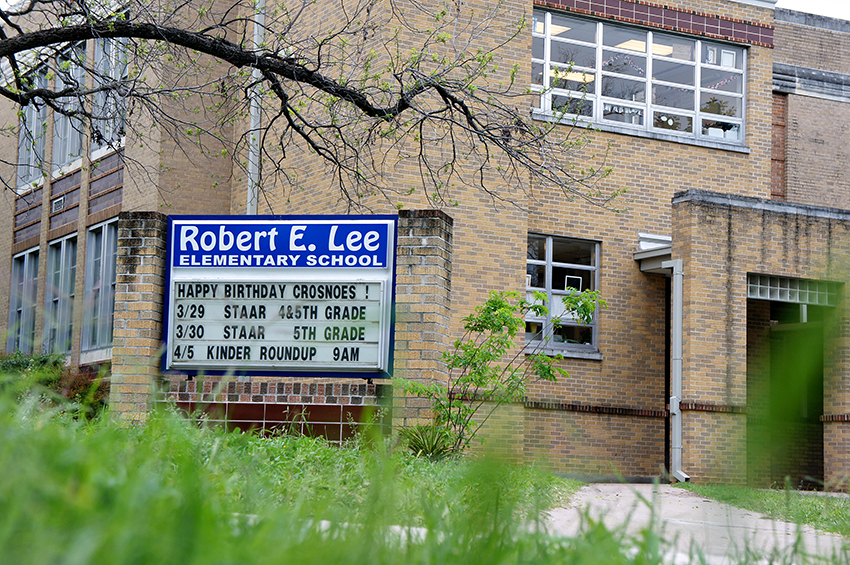Monday night, AISD trustees unanimously voted — with the exception of one abstaining member — to change the name of Robert E. Lee Elementary. Upset with the controversial namesake, some parents of children who attend the elementary school initiated the campaign in January, and have since garnered over 500 signatures for a petition in support. This movement, however, has been met by a counter petition with 450 signatures. The school board will decide the school’s new name on May 23, after considering public concerns on both sides.
This is a landmark decision for Austin.
The name of a public school is an honorable title, so public schools should not be named after Confederate war generals. A place of education and development for children should not be corrupted by the name of men who fought on the side of slavery for the dead Confederacy. Lee is an important figure in American history, but his legacy is far from neutral.
The discussion of Confederate symbols and names cannot stop at Robert E. Lee Elementary. After Monday’s decision, there are still three other AISD schools named after Confederates: John Reagan High School, Eastside Memorial at Johnston, and Sidney Lanier High School.
Richard Heyman, lecturer in the department of geography and the environment, specifically used the example of John Reagan High School to demonstrate how naming public spaces is often a “political project.”
“Reagan High School opened up the same year as the Voting Rights Act. In that year, the Austin [Independent] School District chose to name a new high school after the person who, in Texas, devised the electoral system to exclude African Americans,” Heyman said.
Supporters of keeping Confederate vestiges claim that such changes erase the history of the United States. These discussions have become a staple in schools across the nation, including Harvard and UT, where the student body waged a long, successful campaign to remove its Jefferson Davis statue. Despite this, numerous Confederate symbols still remain on campus.
Minkah Makalani, assistant professor of African and African diaspora studies, said we need to understand history as something more than just a “timeline of events” — it is a living lesson that still has the capacity to marginalize.
“If someone said Confederate symbols are merely historical artifacts that should not offend the descendants of slaves, I would say that they refuse to recognize what the Civil War was actually about and the moral choices that people made at that moment in time,” Makalani said.
Our dark history is an unchangeable aspect of our past. While this darkness requires recognition, recognition does not equate admiration. For this reason, Confederate war generals should not be namesakes for public spaces. Given history’s vast expanse of time, we can find better historic figures to represent educational institutions.
Vernon is a PACE freshman from Houston. Follow Vernon on Twitter @_emilyvernon_.





















